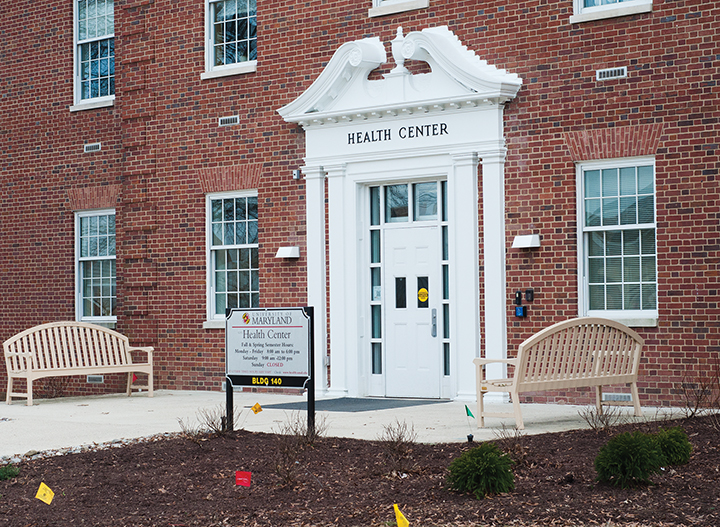The University Health Center has been named a leader in LGBTQ health care equality by the Human Rights Campaign Foundation for the third year in a row. University of Maryland students say while the center’s services are helpful, some LGBTQ students fear using them.
Senior psychology major Louie Dukinfield said the center’s LGBTQ resources have proven valuable. The center began offering hormone therapy services in the summer of 2014, and Dukinfield went there for hormonal treatments as he transitioned.
“[The health center] does a trans health care program, and it’s really nice and beneficial to a lot of people,” Dukinfield said. “When people ask how I transitioned, I tell them that the health center was the best and was super helpful.”
[Read more: UMD is ranked as the most LGBTQ-friendly Big Ten college]
The campaign evaluates health care facilities through a series of tests called the Healthcare Equality Index, which requires facilities to submit their policies regarding LGBTQ issues and verify them. The index is a voluntary test and typically evaluates facilities such as hospitals. This university is one of two to be evaluated by the campaign, said Jenna Beckwith Messman, the health center’s sexual health program coordinator.
Some of these measurements include whether a facility has a patient non-discrimination policy and gender-neutral bathrooms, as well as its involvement in local LGBTQ communities and programming.
Marcos Garcia, the senior manager of the campaign’s Health and Aging program, said these measurements ensure that health care facilities not only provide care to members of the LGBT community, but also have an inclusive culture.
“We evaluate how [facilities] treat their patients, but also how they work with their local community [in] its most basic form,” Garcia said. “LGBTQ people face discrimination in various ways just living in this country, but what we want to do is that when they go to health care facilities, when they’re most vulnerable, they can know that they are getting inclusive care.”
Savannah Speir, the small group coordinator for Pride Alliance, said many transgender people won’t seek out medical attention because they’re worried they won’t get equitable treatment. Speir, a non-binary lesbian, said they know other transgender people who are wary to go to a gynecologist’s office because they view it as a women’s space.
[Read more: UMD Health Center to present its hormone therapy for transgender students at June conference]
“I think [the health center is] respectful to my identity. As someone who has used their resources, I feel respected and felt safe going there,” said Speir, a senior cell biology and genetics major. “But even here, I know people who are afraid to access health care because of their sexuality and gender identity.”
The fears of accessing health care among LGBTQ community members is what drives faculty at the health center to continue working to improve and to continue applying for evaluation by the campaign, Messman said.
“Every year we are actively working to enhance our care. You don’t arrive, because the needs of all communities continue to change, and what we know about providing them inclusive care continues to change,” Messman said.
Garcia said the health center’s dedication to continue improving is shown through its application to the campaign itself. Since participation is voluntary and time-intensive, Garcia said any participation shows a significant commitment to diversity and inclusion, regardless of the score the facility receives from the Healthcare Equality Index.
“If you participate, you’re working to be more inclusive, and we really do appreciate it,” Garcia said. “It’s about participating and letting folks know, ‘Hey, we see you and what your needs are.'”
The health center has received a perfect score for the last two years, according to Messman. She believes the health center is dedicated to continually striving to meet the needs of students and isn’t going to stop because they’re already considered an inclusive space.
“We are incredibly committed to doing this work, to lead where we can and listening where we can and listening to the needs of students and hearing what high-quality and competent care looks like for them,” Messman said.



